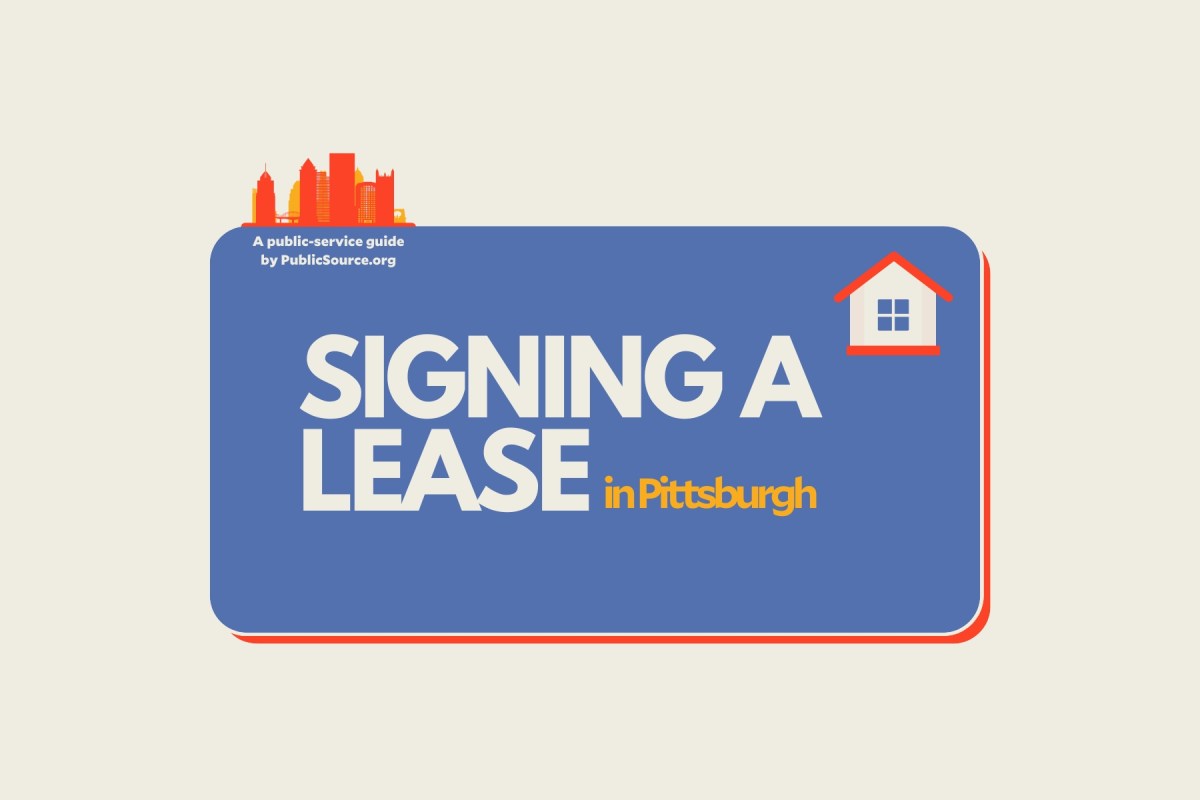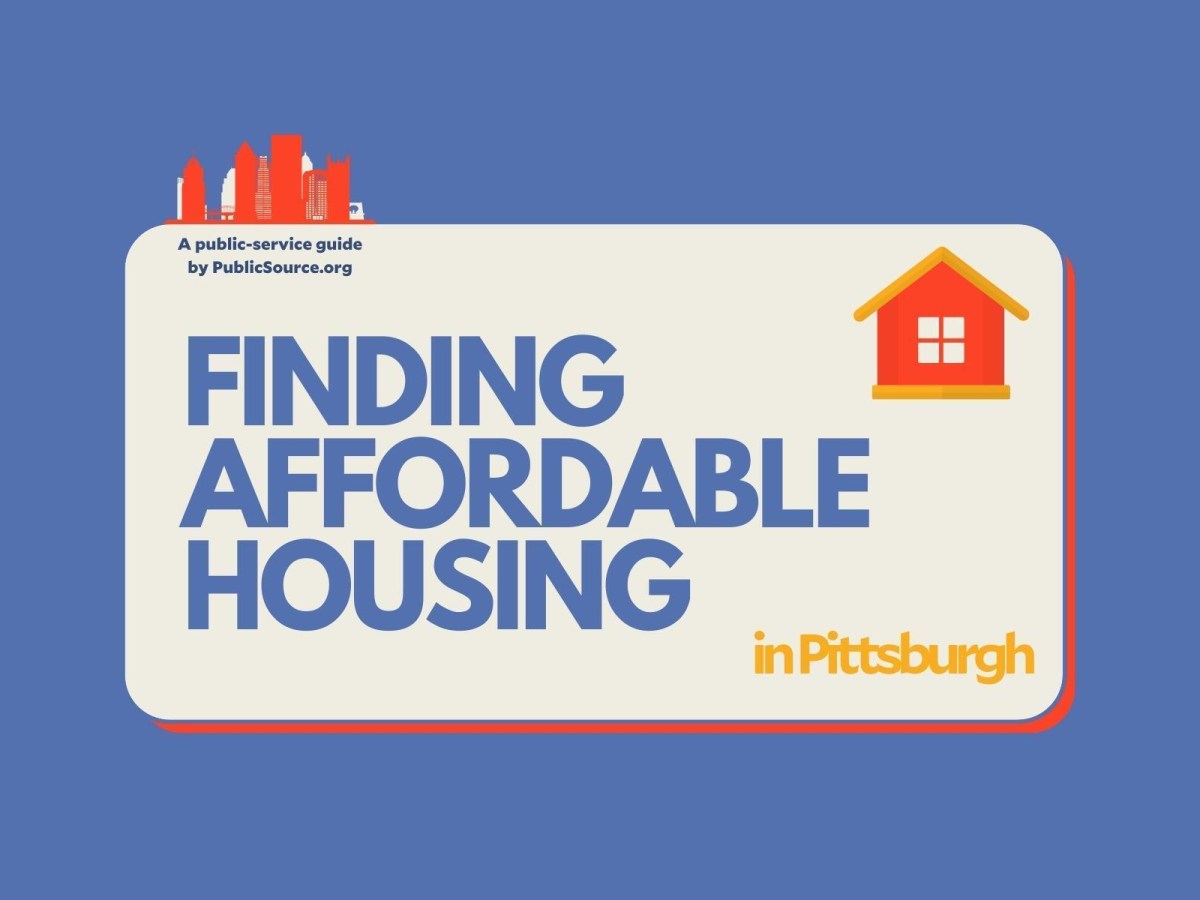It’s always rental season in Pittsburgh, which means you or someone you know could be pondering the fine print of a lease right now.
The pandemic broke the typical May-to-August peak in apartment hunting and replaced it with a constant demand, according to Megan Confer-Hammond, chief executive of the Fair Housing Partnership of Greater Pittsburgh.
Housing costs, meanwhile, are rising: Apartment listing firm Dwellsy.com found that Pittsburgh rents leapt 13% in the 12 months ending in August. That means signing a lease can be more consequential than ever.
Attorneys and advocates in landlord-tenant law say the perfect lease is elusive, but it’s important to be aware of your rights and obligations as a renter before putting pen to paper.
Read on to learn about common elements of a lease, legal guardrails on the landlord-tenant relationship and potential red flags.
What laws govern rental housing?
First off, some good news: You won’t have to master obscure legal jargon to understand a lease. The Pennsylvania Plain Language Consumer Contract Act requires that leases be written in simple and direct terms.
This clarity will come in handy. Your rights and responsibilities as a tenant exist mostly on a lease-by-lease basis in Pennsylvania. The state’s landlord-tenant laws lack guidelines on fees for late rent, notices of entry by a landlord and other key clauses.
At the federal level, the Fair Housing Act of 1968 prohibits discrimination against renters based on race, nationality, religion, sex, familial status, age, status as a victim of domestic violence or disability. That last category can be particularly relevant to rentals.
Tenants with disabilities can count on receiving “reasonable accommodations,” such as ramps, grab bars or having the landlord waive their “no pets” policy for assistance animals. The Fair Housing Act also requires landlords to treat disability checks as equivalent to earned income during the application process.
Pittsburgh added gender identity and sexual orientation as protected classes in 2019. City Council also tried to ban all forms of discrimination by source of income, which would have effectively forced landlords to accept Housing Choice Vouchers, but the state Supreme Court struck down the ordinance.
What can you expect from the screening process?
Landlords commonly run credit and background checks on applicants. They’re also able to reject prospective tenants with incomes below what may be necessary to consistently make rent.
It’s trickier for a tenant to dig into a landlord’s history, as there’s no broadly accessible way to view previous code violations.
Worse yet for tenants, Pittsburgh lacks a rental registry, meaning that anyone can become a landlord without first undergoing property inspections. Some local municipalities, including Penn Hills, have implemented registry programs, and it may be possible in these cases to verify whether a landlord is properly permitted before signing a lease.
What should you look for in a lease?
It’s best practice to do the following before signing a lease, according to local landlord-tenant attorneys and advocates:
- Ensure that each term of the lease is in writing, and never leave anything to a verbal pledge and a handshake
- Tour the unit, if at all possible
- Obtain keys to the property
- Obtain a copy of the lease.
While the typical lease contains dozens of sections, experts said there’s some you should pay particular attention to.
MORE PUBLIC-SERVICE GUIDES
Contracting parties
When you sign your name as a tenant, you become legally bound to the terms of the lease. Occupants, on the other hand, may be listed separately on the lease, but won’t answer to a judge for late rent.
“This is a very important issue. And it’s a cause for a lot of conflict” between tenants, said Brad Sommer, a landlord-tenant attorney and arbitrator.
Property
Dan Vitek, staff attorney at the Community Justice Project, said the property you’re leasing should be well-defined. Check for an address, unit number and which areas you’ll be able to access.
Note who’s responsible for maintaining common areas, Sommer added. For example, a duplex basement may be shared between the two units or only belong to one.
Rent
It’s important to look at the monthly rent, but also the arrangements for late payments. Many landlords advertise rent with a $100 discount, only applicable if tenants pay on time.
Tack on the typical late fee of $50, and now there’s, in effect, a $150 penalty for delinquency. Most district judges will reduce the penalty if challenged during eviction proceedings, Vitek said.
And make sure you’re comfortable with the grace period for late rent, Sommer said, because after that your landlord could move to evict you for non-payment. The standard grace period is five days.
Security deposits
Landlords typically ask for a deposit equivalent to one month’s rent as insurance against any damages to the property. Asking for two months of rent — the maximum allowed by Pennsylvania law — has become more common lately, according to Sommer.
Start and end dates
A lease should list the beginning and end of your tenancy as well as terms for renewal. Many leases renew automatically, requiring the landlord or tenant to give at least 30 days’ notice before terminating the lease, but this arrangement can vary.
Some leases renew on a year-to-year basis, while others become monthly after the first year. If either party opts for non-renewal and the lease term has expired, a tenant’s failure to vacate the property could lead to eviction.
Utilities
When it comes to utilities, “know who’s responsible for what,” Sommer said. Many leases have a series of checkboxes to indicate whether the landlord or tenant must pay for electricity, gas, water, sewage and trash removal.
Before signing, know whether you’ll be setting up an account with utility companies directly. Some landlords may choose to put the entire building’s utilities in their name and then individually bill tenants. In this case, make sure your landlord agrees to send copies of these bills to avoid inaccurate charges.
Appliances
Determine whether the apartment comes equipped with a refrigerator, dishwasher, laundry machines, air conditioning and other appliances. Like the utilities section, expect checkboxes here.
Maintenance contacts
“You should have a concern” about leases that don’t list a 24/7 emergency maintenance contact, Sommer said. Run a hypothetical, such as a burst pipe: Who can you call as your apartment floods?
The lease should also list a contact for routine maintenance requests.
What can’t be in a lease?
Landlords hold tremendous leverage, and Confer-Hammond said “arguably fundamentally illegal” clauses are common in leases.
Vitek concurred, but said he often advises tenants to go ahead and sign the lease anyway.
“It’s a take-or-leave-it scenario; fight it on the back end if you have to,” Vitek said.
Technically, there are limits to what landlords can stick in a lease. For example, landlords can’t assert their right to evict tenants on their own through methods such as removing personal property or shutting off water.
“You don’t pay your landlord, they don’t get to just show up and lock you out,” Vitek said. They need to file for eviction, triggering a hearing before a district judge.

In addition, landlords are held to a warrant of habitability, meaning that the property must be livable before tenants can move in. You can’t be asked to waive this right and accept an uninhabitable property as is.
The “American rule” dictates that each party in a legal matter must pay their own attorney fees, though many leases require the tenant to cover the landlord’s costs for going to court. This provision isn’t ironclad, according to Vitek, and a judge could toss it aside because it’s so advantageous to the party who drafted the contract.
Can you negotiate?
It’s possible to negotiate the lease before signing, though don’t expect to make any major rewrites, Vitek said.
Bargaining over terms of the lease, such as the late fee, could be interpreted by a landlord as a reflection of your reliability as a tenant.
“The landlord is going to be like, ‘You’re already planning on not paying me on time? I’m not going to rent to you,’” Vitek said.
Sommer recommended the grace period as a modest target for negotiation. Trying to extend this time can give you more wiggle room in the event of an income shock, such as an illness, without necessarily raising a red flag for landlords.
With reasonable expectations and knowledge of landlord-tenant laws, you can make the best of what little leverage you have as a renter, Confer-Hammond said.
“It’s about understanding how to engage,” she said, “and not necessarily that you’ll be able to get the lease that you want.”
Jack Troy is a PublicSource editorial intern and can be reached at jack@publicsource.org or on Twitter @jacktroywrites.
This story was fact-checked by Ladimir Garcia.










